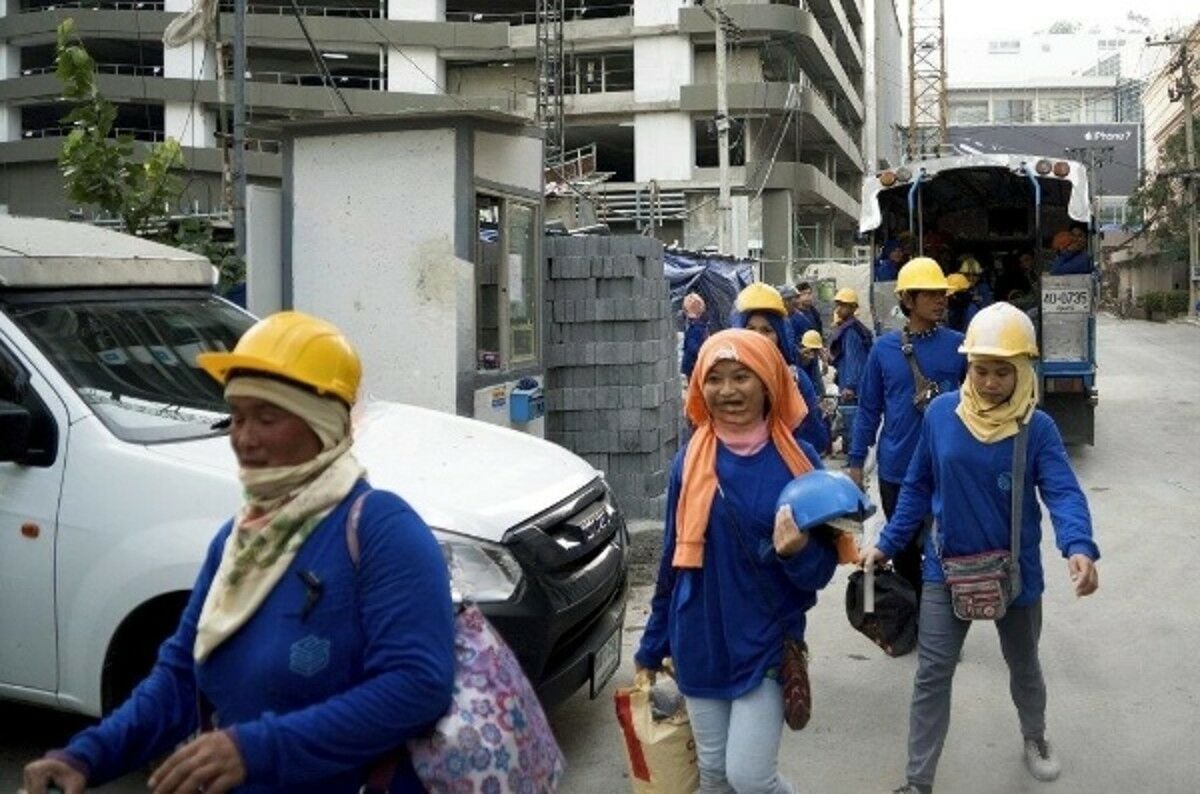Thailand migrant workers lose legal status amid new permit hurdles

Employers and migrant workers are expressing significant frustration over new registration and work permit renewal requirements in Thailand, which have led to many migrant workers losing their legal status. These requirements, introduced recently, have been criticised for their complexity and the obstacles they pose to both employers and employees.
Nilubol Pongpayom, a representative from the employer group Nai Chang Si Khao (White Employers), highlighted the issue yesterday, November 7, noting that they had previously petitioned the government through the Prime Minister’s Office.
The request was for a revision of the requirements to facilitate a more straightforward process for migrant registration and work permit renewal. Yet, no response has been received, resulting in hundreds of thousands of migrant labourers missing the October 31 deadline, consequently becoming illegal workers.
The crux of the problem appears to be the Certificate of Identity (CI), an additional document now required for migrant worker registration. This certificate is a prerequisite before applying for a work permit renewal. Nilubol described the process as overly complicated, exacerbated by the fact there are only seven CI centres across the nation.
Reports have surfaced of alleged poor supervision at these centres, leading to unfair treatment of both migrant workers and their employers. The CI centre in Samut Prakan, for instance, has been accused of demanding a CI fee ranging from 3,800 to 4,000 baht without providing proper receipts.
“The process was rather complicated and involved multiple fees.”
With only seven CI centres available, many migrant workers are forced to travel considerable distances to comply with the requirements. This logistical challenge adds another layer of difficulty for those trying to maintain their legal status.
Workers whose permits are set to expire on February 13 face additional hurdles, as they will need to return to their home countries to start the registration process anew before they can resume work in Thailand.
Workers testimonies
A 30 year old worker from Myanmar, who preferred to remain anonymous, shared her story of working legally for a large company in Samut Sakhon and consistently paying taxes. The new CI requirement’s complexity caused her to miss the October 1 deadline, rendering her an illegal migrant worker.
“I have been living and working here, paid all my taxes and have social security. But this complicated process made me miss the deadline and lose my legal status.”
Another migrant worker, a 28 year old man also from Myanmar, whose permit is due to expire on February 13, voiced his reluctance to return to Myanmar. He expressed concerns about inadvertently supporting the ruling junta through taxes if he returned.
The situation underscores the urgent need for a more simplified and accessible process to ensure that migrant workers can maintain their legal status and continue contributing to the Thai economy, reported Bangkok Post.
Frequently Asked Questions
Here are some common questions asked about this news.
Why are the new registration requirements causing frustration among migrant workers in Thailand?
The complexity and logistical challenges of the process lead to legal status loss for many workers.
How might the limited number of Certificate of Identity (CI) centres affect migrant workers’ legal status?
With only seven centres, workers face long travel distances, complicating timely legal status maintenance.
What if the Thai government simplified the migrant registration process?
A streamlined process could prevent legal status loss and enhance migrant workers’ economic contributions.
How does the requirement to return to home countries impact migrant workers with expiring permits?
It adds financial and personal burdens, potentially disrupting workers’ lives and livelihoods in Thailand.
What role do CI centre practices play in the migrant registration issue?
Alleged unfair practices and excessive fees at CI centres exacerbate difficulties faced by workers and employers.
Latest Thailand News
Follow The Thaiger on Google News:


























